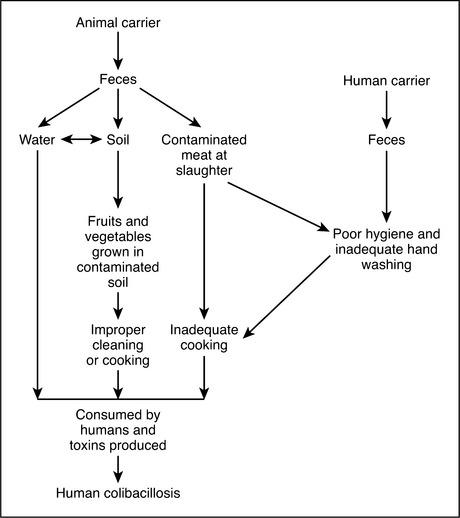COLIBACILLOSIS
Colibacillosis is a disease caused by the bacterium Escherichia coli. Colibacillosis is also known as hemorrhagic colitis. Other names associated with colibacillosis are colibacteriosis, colitoxemia, and enteropathogenic diarrhea. We will concentrate on E. coli O157:H7, which has emerged as a significant cause of food poisoning in people.
HOSTS
When E. coli O157:H7 enters the intestinal tract of a human it becomes pathogenic and may cause severe disease. The organism is passed in human feces and is infective to other people.
TRANSMISSION
Transmission of E. coli O157:H7 is by the fecal-oral route. E. coli O157:H7 is passed in the feces of infected animals, primarily cattle. When people put anything in their mouths that has been in contact with the infected feces, they may become infected. An infected person can also infect other people (Figure 6).
Stay updated, free articles. Join our Telegram channel

Full access? Get Clinical Tree



